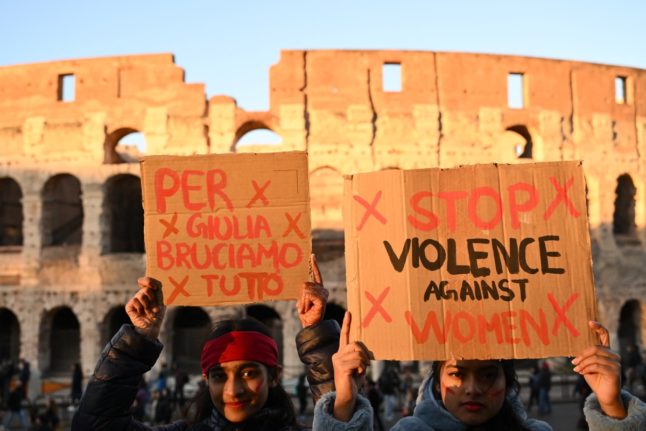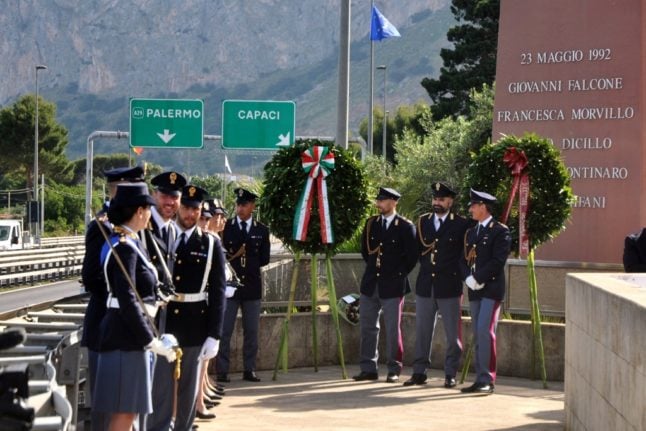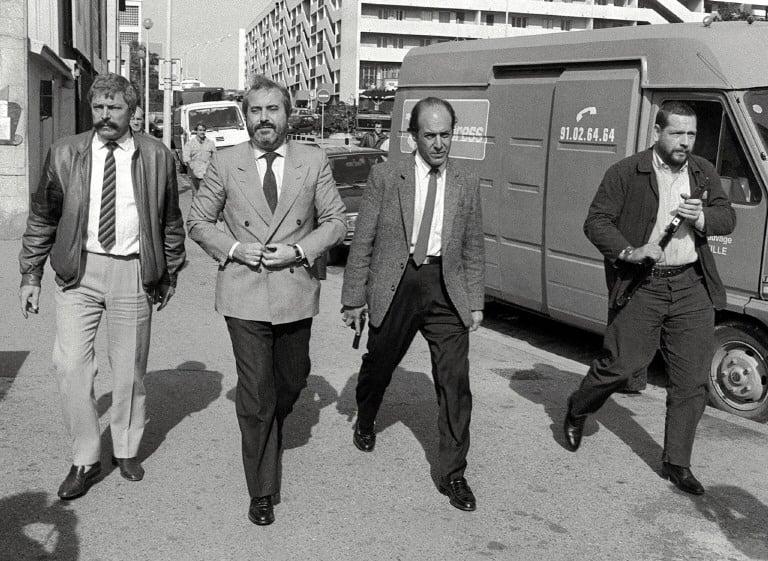Worldwide marches were organised on Saturday to mark the UN-designated International Day for the Elimination of Violence against Women.
In Italy, which is still reeling from the gruesome murder of a 22-year-old biomedical engineering student, allegedly by her former boyfriend, the occasion felt especially poignant.
The body of Giulia Cecchettin was found earlier this month in a gully near Lake Barcis, about 120 kilometres north of Venice, her head and neck covered with stab wounds. Her ex-boyfriend was arrested in Germany a week later.
Some 50,000 people protested in Rome on Saturday, with the Colosseum lit-up in red.
“This year… takes on particularly important connotations for us… for those in this country who care about the rights, claims and emancipation of all women, following yet another femicide, the killing of Giulia Cecchettin”, said Luisa Loduce, a 22-year-old librarian who attended the march.
READ ALSO: Almost half of Italian women report suffering sexual harassment
In the year to November 12, there have been 102 murder cases with female victims in Italy, 82 of whom were killed by family members or current or former partners, according to the Interior Ministry. This compares with 51 killed by their partner or ex partner in the same period of 2022, and around 70 in both 2021 and 2020.
Womens’ rights campaigners say attitudes must change in Italy, where cases of violent crimes committed against women by their partners or ex-partners are often portrayed in the media as tragic stories of love gone sour, with the killers described as “jealous”.
Earlier this week, Italian Prime Minister Giorgia Meloni announced new measures were on the way to tackle Italy’s problem with violence against women.
The Senate on Wednesday unanimously approved a bill drafted by Family and Equal Opportunities and Family Minister Eugenia Roccella which would strengthen restraining orders and introduce heightened surveillance on men found guilty of gender-based violence.
The Education Minister also announced this week that Italian schools will “to address the issue of sexism, machismo and psychological and physical violence against women,” in a bid to prevent femicide.
READ MORE Italian schools to tackle ‘machismo and sexism’ after student’s murder




 Please whitelist us to continue reading.
Please whitelist us to continue reading.
Member comments